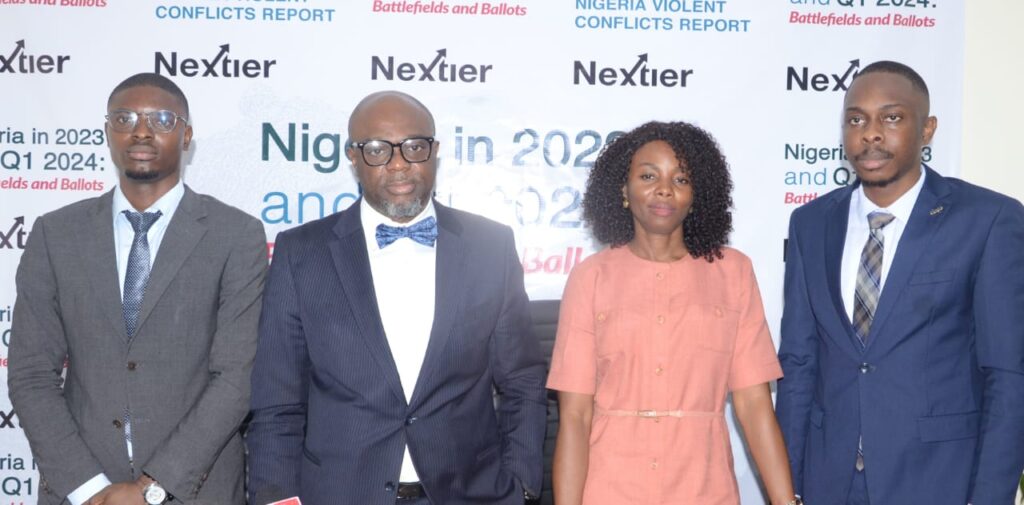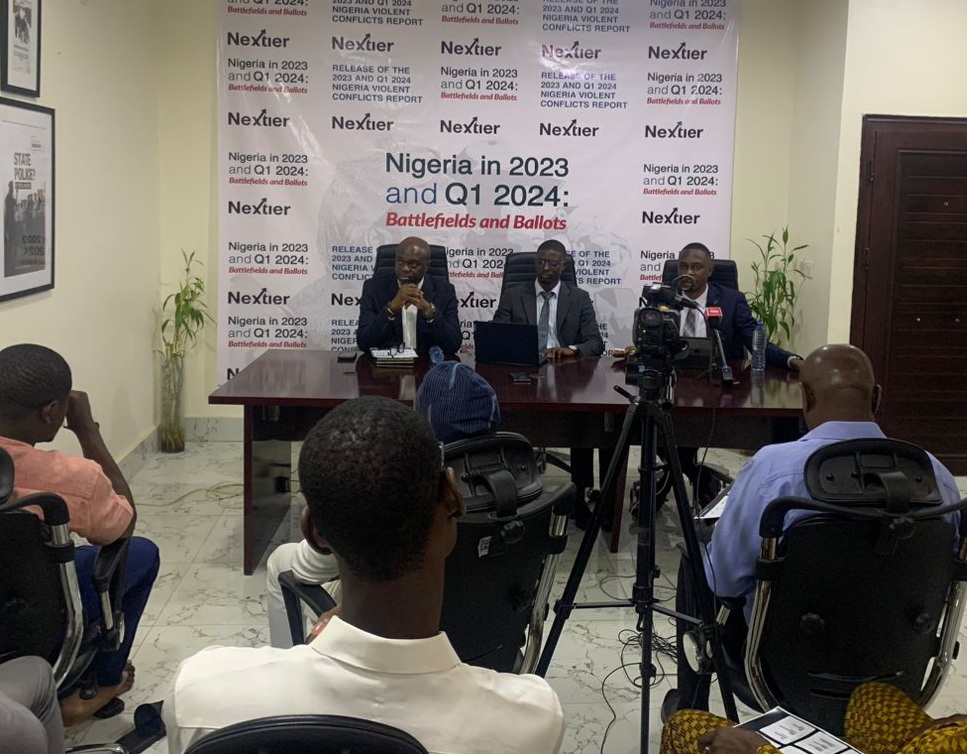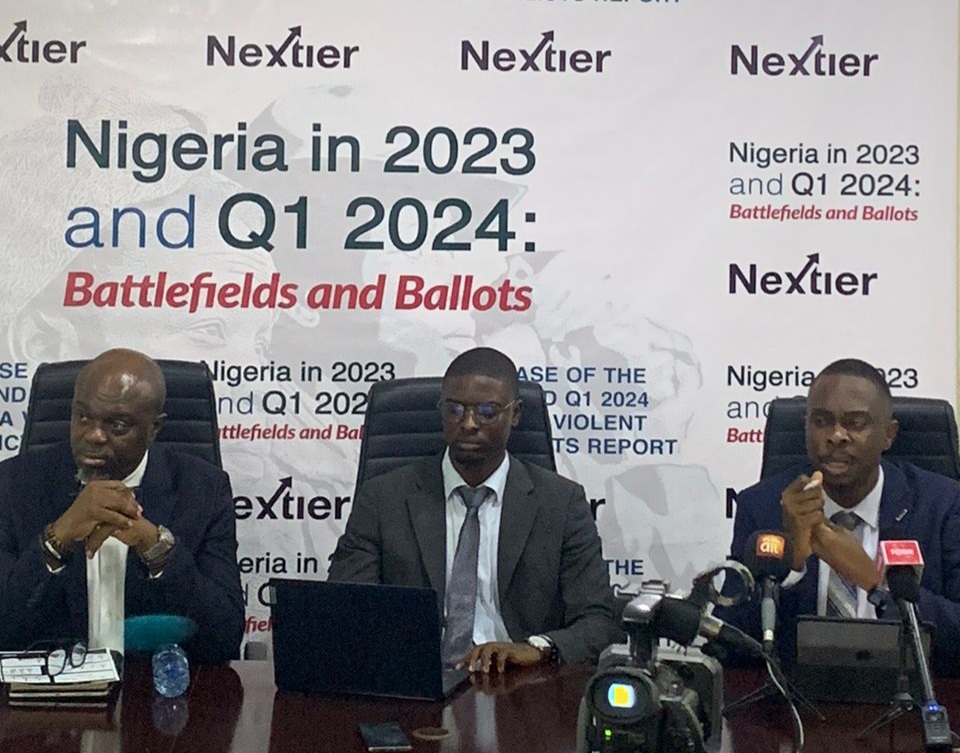Gift Wada
Nextier, a research organisation, has released its first quarter 2024 Nigeria Violent Conflicts Report, which reveals a staggering 5,319 casualties, 3,110 kidnap victims, and 1,500 incidents of violent conflict between January 2023 and March 2024.
Presenting the report in Abuja, Dr. Ndubuisi Nwokolo, Partner at Nextier, lamented the devastating impact of conflicts on Nigeria’s economy, education, and humanitarian crises. “Nigeria’s ongoing violent conflicts have inflicted severe wounds on the nation’s economy, impacting livelihoods, food production, infrastructure, and overall development,” he said.
He emphasised that prolonged insecurity erodes trust in government institutions, leading to the emergence of ethnic militias and non-state armed groups. “When the state fails to protect citizens, it risks losing legitimacy. As a consequence, ethnic militias and other non-state armed groups have emerged, operating in various regions,” he said.
The report calls for collaborative efforts from state and federal institutions to address the root causes of conflict and insecurity while fostering socioeconomic development and enhancing security measures.
Senior Policy Research Analyst, Kenn Maduagwu, noted that despite a decline in Boko Haram’s insurgency, terrorism remains a significant concern in Nigeria, with ISWAP and other groups posing ongoing threats. “While fatalities have decreased in 2023, the overall toll remains significant. The conflict has resulted in widespread displacement of people, which can exacerbate existing vulnerabilities and push families deeper into poverty,” he said.
The report identifies Gunmen Attacks, Banditry, Farmer-Herder Conflict, and Kidnapping as high-risk conflicts, while Civil Unrest, Maritime Piracy, Armed Robbery, Secessionism, and Communal Clashes are classified as low-risk conflicts.
To mitigate the conflicts, the report recommends strategic investments in education, job creation, and poverty reduction initiatives, particularly in high-risk regions. “The importance of proactive partnerships between law enforcement agencies and communities cannot be overstated. Enhanced intelligence gathering and apprehension efforts, along with a focus on strengthening existing operations such as Operation Puff Adder, are deemed essential in combating armed groups and banditry,” said Senior Consultant Nextier, Ndidi Anyanwu.
The report also emphasises the need for conflict resolution mechanisms to facilitate dialogue between historically tense communities, particularly between herders and farmers. “Addressing land disputes and resource allocation issues, alongside investigating funding sources and networks supporting gunmen, are identified as pivotal steps towards sustainable peace,” the report stated.





Addressing the multifaceted nature of kidnapping in Nigeria, Nextier advocates for broad-based combative and non-combative approaches tailored to the unique manifestations across states and regions. “Criminal gangs and terrorist groups will continue to use ransom kidnap as a means to finance their operations. The current ongoing agitation and government response might persist without significant changes, potentially leading to prolonged tension and instability,” the report stated.
The report stresses the importance of analysing and addressing historical injustices, economic inequalities, political marginalisation, and lack of trust in government institutions. “Highlighting shared values, history, and cultural diversity through education and community engagement is deemed essential for fostering national unity and resilience,” the report stated.
Overall, the report highlights the need for a comprehensive and collaborative approach to address the complex security challenges facing Nigeria.

